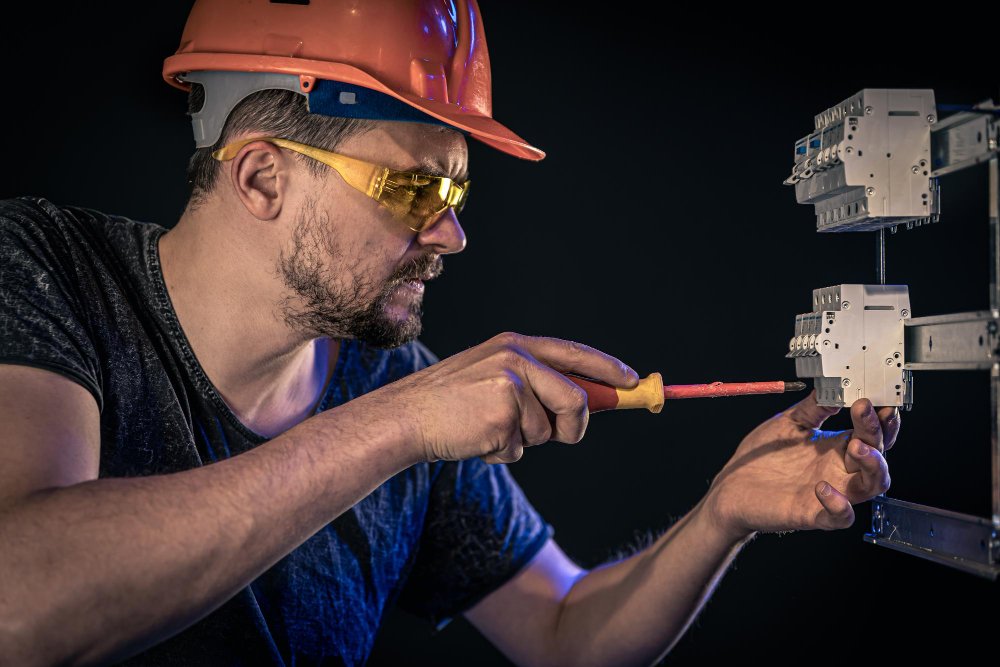Getting started as an electrician in the UK involves a mix of hands-on training, formal qualifications, and practical experience. Whether you’re fresh out of school, switching careers, or looking to upskill, the route from zero to fully qualified can seem complex—but clearly laid out at the how to become an electrician uk guide. If you’re based in Shrewsbury or nearby, the locally available Electrician Courses Shrewsbury make learning easier to access.
Elec Training offers structured courses tailored to all pathways—apprenticeships, diplomas, or experience-based assessments—backed by experienced tutors and practical support. You can find full details at their central hub www.elec.training.
Understanding Your Pathways
There are several well-established routes to becoming a qualified electrician:
- College Courses — Learn the theory and foundational practical skills through Level 2 and Level 3 electrical installation diplomas, or T Levels in related fields. Still, you’ll need real-world experience to complete the picture.
- Apprenticeship (Level 3 – Installation & Maintenance or Domestic Electrician Standard) — Work on-site while training in college one day a week. It usually takes about 3 to 4 years, and you earn while you learn.
- Diploma Route (Adult Learner) — Complete Level 2 and 3 diplomas, then gather on-the-job experience and assessments like the NVQ Level 3 and AM2 to become fully qualified.
- Experienced Worker Assessment (EWA) — Suitable for those already working in the field without formal qualifications. Requires several years of experience and a Level 2 base qualification.
- Direct Employment with Recognition — In rare cases, experienced workers may get workplace competence recognised via assessments or an equivalent route.
Whichever route you take, it’s important to build both technical knowledge (wiring regs, safety, inspection/testing) and practical competence in live environments.
Why Each Route Matters
- College route is flexible and ideal for newcomers or those without a job in the industry.
- Apprenticeships combine training with real-world work, and are formally structured and widely respected.
- Diploma + NVQ/AM2 provides a focused path, especially if you’re motivated and already balancing other responsibilities.
- EWA is perfect for securing formal recognition when you already bring years of experience.
Choosing the pathway best suited to your circumstances and learning style is the crucial first step.
Key Requirements and Timelines
- Entry requirements typically include a few GCSEs (especially Maths and English) or equivalent.
- Apprenticeships usually take around 3 to 4 years with both classroom and on-site learning.
- Adult routes — Diploma plus NVQ/AM2 — may take around 12 to 18 months, though this varies by pace, prior learning, and opportunities to gain workplace experience.
- Experienced Worker Assessment depends on the strength of your portfolio and prior experience; timeframes differ.
What It Takes to Become Fully Qualified
Here’s what the process typically involves:
- Gain technical knowledge via diploma or apprenticeship.
- Collect evidence of your practical competence through portfolio, workplace observations, and tests.
- Pass NVQ Level 3 and AM2 assessments, or EWA if you’re an experienced candidate.
- Apply for an ECS Gold Card, enabling you to work on sites and join competent person schemes.
- Continuing Professional Development (CPD) — Stay up to date with wiring regulations, renewables, and evolving standards.
With a Gold Card or equivalent competence certification, you can self-certify certain building work under Part P regulations—essential for getting signed off jobs without external approval.
Tips to Smooth Your Journey
- Think ahead on credits — In colleges or apprenticeship programs, work toward your NVQ/AM2 or evidence as you learn, so it doesn’t pile up later.
- Keep a detailed portfolio — Photos, witness testimonies, test records—these make assessments easier and quicker.
- Learn and stay current — Wiring regs (BS 7671, 18th Edition + amendments), safety practices, and green tech are always evolving.
- Use support resources — Talk to tutors, mentors, industry bodies (IET, BSI, ONS data), and peers to keep motivated and informed.
Bringing It Home in Shrewsbury
If you’re around Shrewsbury, access to training centres makes all this more viable. The Electrician Courses Shrewsbury offer local options, reducing travel and helping learners connect with regional employers. Whether you prefer the college route, apprenticeship, or bringing existing experience into qualification, local delivery makes a significant difference—especially when you’re balancing work, study, or family commitments.
Ready to start building a future in electrics? Whether you’re looking for structured apprenticeships, diploma-based learning, or recognition for your experience, it all begins with one practical choice.
Elec Training supports learners at every stage—new entrants, career changers, or experienced technicians seeking formal recognition—with pathways tailored to you and training delivered locally in Shrewsbury. Explore your route through the full guide, and get q ualified with confidence.


